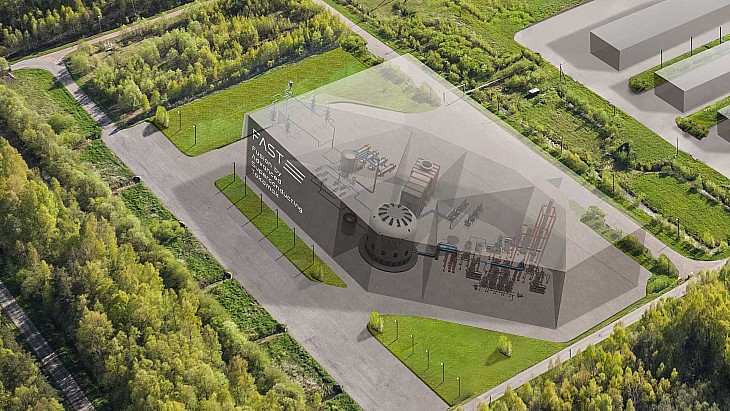The 2012 election pledge by former French president Francois Hollande aimed to limit nuclear's share of French generation to 50% by 2025, and to close Fessenheim - the country's oldest plant - by the end of his five-year term, which ended in May 2017. In June 2014, following a national energy debate, his government announced the country's nuclear generating capacity would be capped at the current level of 63.2 GWe. It would also be limited to 50% of France's total output by 2025. The French Energy Transition for Green Growth Law was adopted in August 2015.
When he was elected, President Emmanuel Macron promised to respect Hollande's target. However, he has said French reductions in nuclear power must be at a pace which allows the country to retain energy sovereignty.
The new draft energy and climate bill is aimed at enshrining into the law the objective of making France carbon-neutral by 2050. Presenting the bill, Rugy said: "While the energy transition law provided for quartering greenhouse gas emissions by 2050 [compared with 1990 levels], the government goes further with the zero net emission target by 2050, the world's highest standard for greenhouse gas emissions in the fight against global warming." He added, "This makes France the first country in Europe to set the goal of carbon neutrality into law, and it will now be the compass of all our climate policies."
To achieve this carbon-neutral objective, France has adopted a strategy for energy and climate, broken down into two major pillars: the National Low Carbon Strategy and the Multiannual Energy Program presented at the end of 2018 by the government, and that will formally come into force when the energy-climate bill is passed by parliament.
The draft bill sets a trajectory to decarbonise the energy mix by accelerating the decline in fossil energy consumption to at least 40% in 2030, instead of the less than 30% forecast in the French Energy Transition for Green Growth Law. It also calls for the end of electricity production from coal in metropolitan France by 2022, by putting in place a legal framework allowing the shutdown of coal-fired power plants.
However, the bill also calls for "realistic goals to transform our energy model by increasing the timeframe for reducing nuclear power to 50% by 2035 instead of 2025, which would have required the construction of new gas-fired plants, and would have involved an increase in our greenhouse gas emissions."
On 27 November last year, Macron unveiled the programmation pluriannuelle de l'énergie (PPE), a strategy document for managing the energy transition over the coming decades. At its core, the PPE aims to reduce France's utilisation of its nuclear fleet, which today represents around three-quarters of its generating capacity. Launching the PPE, Macron announced that a total of 14 French power reactors of 900 MWe capacity will be shut down in order to reduce the share of nuclear in the country's electricity generation mix from the current 75% to 50% by 2035. He said the closure schedule will depend on the transition of France's energy mix, including the planned increase of renewable energy sources and the expansion of interconnection capacity with neighbouring countries.

.jpg)



_82983.jpg)
_34792.jpg)
_16403_79272.jpg)


_76087_55556.jpg)



